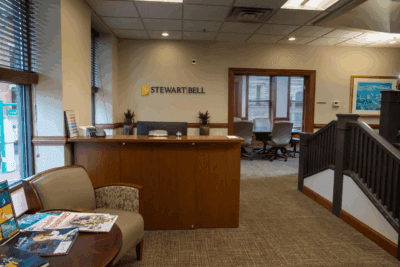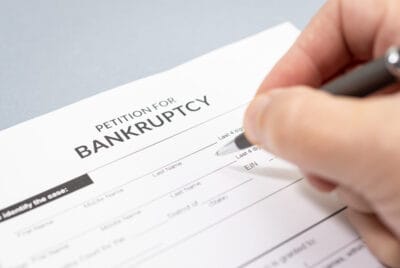
Sidewalk slip and fall accidents happen all the time, and depending on the nature and location of the incident, the injured individual may be able to claim resulting damages from their injury from either public or private entities.
Read on to learn more about which situations may create a possible personal injury case and how a slip and fall attorney might approach the scenario.
Determining Ownership and Duty of Care for a Sidewalk
Typically, the sidewalks we think of are considered part of the public right-of-way, which means the public has the right to access them whenever they want.
Some sidewalks, especially those in neighborhoods maintained by a homeowner’s association (HOA), are actually privately owned even though they appear identical to normal, publicly accessible sidewalks. In these cases, the HOA expects residents and their invited guests to use them. Other times, a property owner may have a sidewalk that they do not wish the public to access, which should be accompanied by signs like “POSTED: NO TRESPASSING.”
Even in instances where a sidewalk is part of the public right-of-way, a state or municipal agency may not be responsible for maintaining it. On private property, for instance, the owner of the property that the sidewalk intersects is generally expected to maintain the section of sidewalk in front of their house or property. [Charleston, West Virginia Code § 102-52]
In areas with more deliberate urban planning, such as downtown Charleston, the local public works agency or a related agency may have a duty to keep sidewalks cleaned, maintained and in repair.
Knowing who has a duty to maintain and repair sidewalks can help you know who could be liable for any any injuries that result from a sidewalk in disrepair.
Liability and Negligence for Sidewalk Accidents
In order to pursue a damages claim against someone for a slip and fall accident on a sidewalk, the scenario must involve negligence. Negligence cases are viable when:
- Someone has a duty of care towards something, like a duty to repair sidewalks abutting their property
- Someone breaches that duty through an abnormal level of neglect or apathy
- The breach in duty led to an accident
- The accident resulted in an injury with medical costs
An important concept to note is that the person with a duty of care must have been acting unreasonably. So, if they could not reasonably have noticed a defect in the sidewalk because it was so small or did not seem like it posed a danger, they may not be liable.
This situation arises many times when sidewalks are wet from rain or covered in snow and ice. State agencies are explicitly immune from liability for dangerous conditions created from snow and ice, unless the condition was purposefully caused by the agency in question. [WV Code §29-12A-5] Private entities may not be liable if they did not have a reasonable amount of time to respond to the condition, such as if someone slips on their section of sidewalk at 5 AM, when workers have not yet woken up after a freeze.
Pursuing Legal Action With Help From an Attorney
Rules, exceptions and nuance dictate an injured individual’s options for recovering damages following an accident on a sidewalk. If you’ve been injured in a slip and fall, you should document your injuries and the conditions of the sidewalk thoroughly. You should also reach out a slip and fall accident lawyer to learn how to proceed strategically with your case. Contact Stewart Bell, PLLC, today to schedule a free case review.





